915 26th Ave. N.W. Suite C5
Gig Harbor
WA 98335
USA
Phone: 1-866-731-7663
Displaying 10 Live course(s).
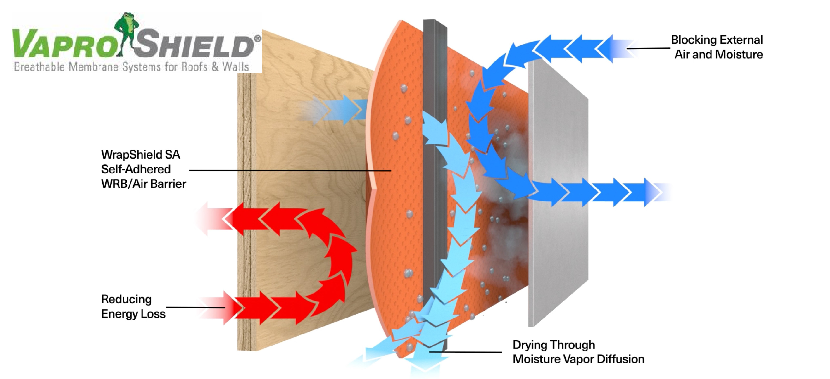
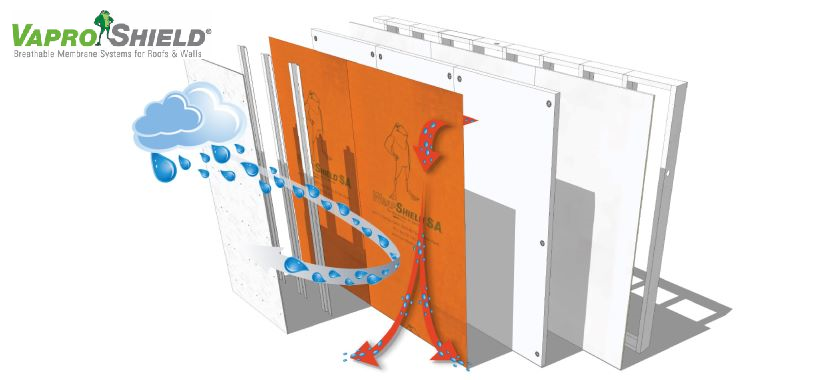
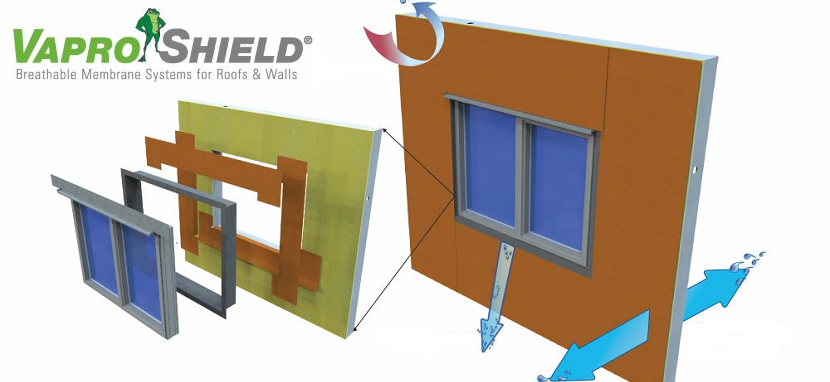
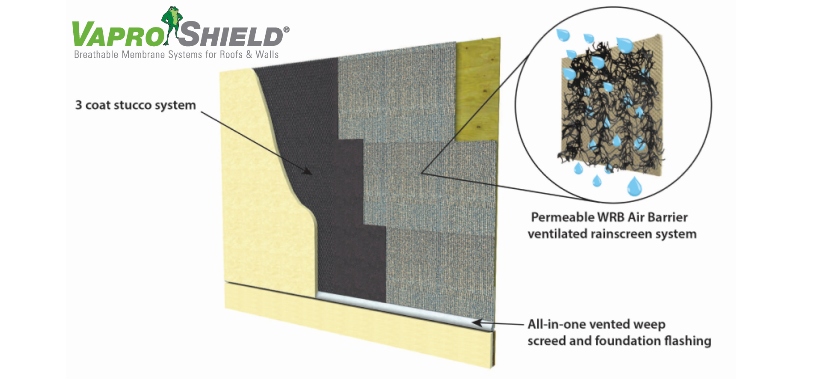
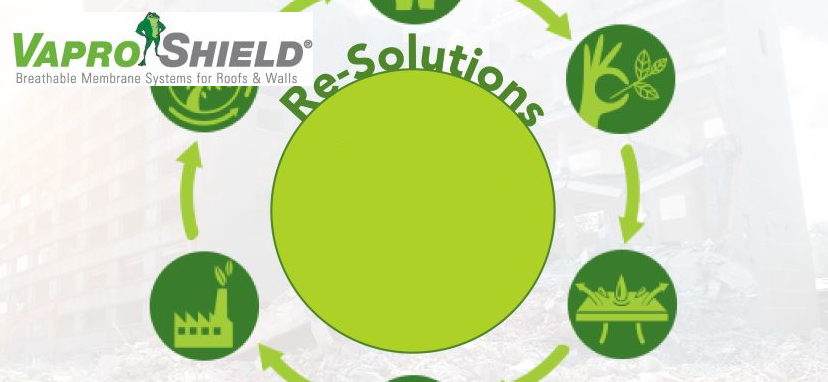
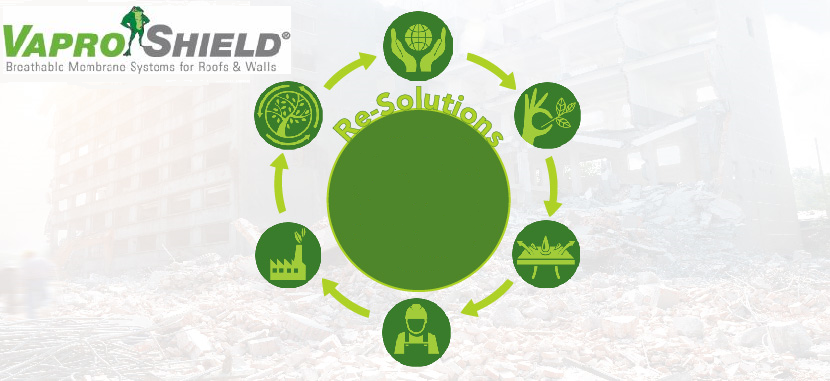
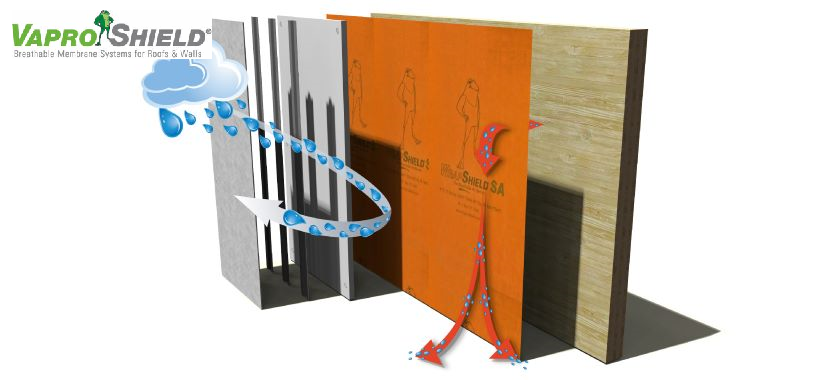
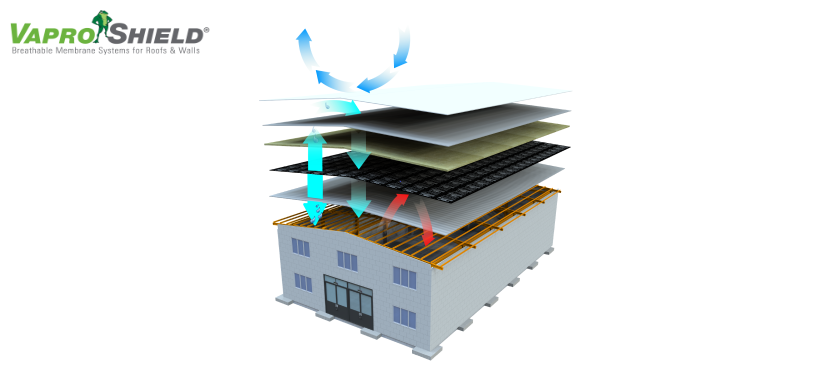
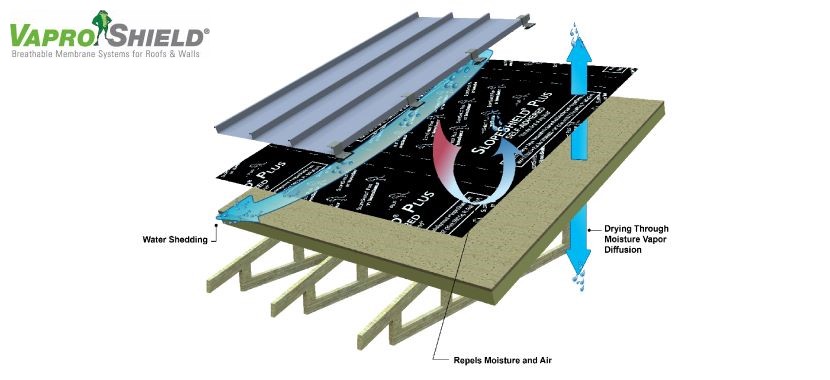
Scan this code with your mobile device camera to take this page on-the-go!

https://redirect.aecdaily.com/s480282/www.aecdaily.com/course/1001779
 Low permeance vapor barriers, once thought to improve performance, may in fact increase interior condensation and trap moisture within the wall assembly. Due to the problems with impermeable water-resistive barrier (WRB) installation many architects are now incorporating highly vapor open WRB systems in their designs. But many still believe too much permeability is bad for a wall assembly. Studies show that highly permeable WRB systems increase substrate drying, reduce the wet time of absorptive claddings allowing permeable WRB membranes to enhance the wall assembly performance. This presentation investigates the current research on vapor open systems and discusses how more permeability enhances wall assembly performance.
Low permeance vapor barriers, once thought to improve performance, may in fact increase interior condensation and trap moisture within the wall assembly. Due to the problems with impermeable water-resistive barrier (WRB) installation many architects are now incorporating highly vapor open WRB systems in their designs. But many still believe too much permeability is bad for a wall assembly. Studies show that highly permeable WRB systems increase substrate drying, reduce the wet time of absorptive claddings allowing permeable WRB membranes to enhance the wall assembly performance. This presentation investigates the current research on vapor open systems and discusses how more permeability enhances wall assembly performance.
| Date & Time | Location | Contact | |
|---|---|---|---|
| Thursday, April 17, 2025 at 13:00 EDT (UTC-04:00) | Webinar | Carol Danhof |
Scan this code with your mobile device camera to take this page on-the-go!

https://redirect.aecdaily.com/s480282/www.aecdaily.com/course/1046311
 As interest in cross laminated timber buildings grows, the market for building enclosure products, as a whole, has yet to fully provide the water-resistant barriers, vapor barriers, and air barriers to optimally support the unique characteristics of wood. Furthermore, there are few building enclosure design guides specific to detailing wood-framed walls, floors and roofs. This comprehensive course fills the gap, providing detailed information on mass timber, building enclosure issues, the vapor-permeable technology available to address wood’s unique moisture characteristics, and a how-to guide on detailing the walls, floors and roof of the enclosure.
As interest in cross laminated timber buildings grows, the market for building enclosure products, as a whole, has yet to fully provide the water-resistant barriers, vapor barriers, and air barriers to optimally support the unique characteristics of wood. Furthermore, there are few building enclosure design guides specific to detailing wood-framed walls, floors and roofs. This comprehensive course fills the gap, providing detailed information on mass timber, building enclosure issues, the vapor-permeable technology available to address wood’s unique moisture characteristics, and a how-to guide on detailing the walls, floors and roof of the enclosure.
There doesn't seem to be any scheduled live events for this course. REQUEST one at a convenient time and location for you.
Scan this code with your mobile device camera to take this page on-the-go!

https://redirect.aecdaily.com/s480282/www.aecdaily.com/course/1043832
 Studies show that a breathable self-adhering roofing underlayment has the ability to: Provide drying Ease installation Extend the life of the roof assembly This course investigates current knowledge of breathable, vapor-open (permeable) roofing underlayments and their ability to mitigate water intrusion, reduce long-term exposure to wetted substrates, and enhance the drying capacity of the roof assembly — extending the life of the roofing assembly.
Studies show that a breathable self-adhering roofing underlayment has the ability to: Provide drying Ease installation Extend the life of the roof assembly This course investigates current knowledge of breathable, vapor-open (permeable) roofing underlayments and their ability to mitigate water intrusion, reduce long-term exposure to wetted substrates, and enhance the drying capacity of the roof assembly — extending the life of the roofing assembly.
There doesn't seem to be any scheduled live events for this course. REQUEST one at a convenient time and location for you.
Scan this code with your mobile device camera to take this page on-the-go!

https://redirect.aecdaily.com/s480282/www.aecdaily.com/course/1001650
.jpg) Knowing the importance of preserving existing buildings and material, as explored in “Re-Solution Part I: A Carbon Case for Building and Material Re-use” this course will examine which strategies are best for different structures and situations. We will explore different [a host] of scenarios and case studies, with an eye towards the potential for improvement across the board. Carbon (dioxide) is a hot topic these days and will be a companion of sorts, though we will be sure to include H20 (oxygen, hydrogen, nitrogen) since all of these work interdependently in buildings, colluding as an all-too-often overlooked enemy of sustainability: moisture damage. If a building leaks, it is not sustainable. Here we will brush with a broader stroke, emphasizing the need for good design and detailing, while exploring examples of successful wall and roof assemblies. In “Re-solutions III: Facilitating Architectural Re-use and Wiser Wood in New Construction,” we will hone in on specific factors which can help hedge successes and minimize pitfalls in implementing reuse strategies.
Knowing the importance of preserving existing buildings and material, as explored in “Re-Solution Part I: A Carbon Case for Building and Material Re-use” this course will examine which strategies are best for different structures and situations. We will explore different [a host] of scenarios and case studies, with an eye towards the potential for improvement across the board. Carbon (dioxide) is a hot topic these days and will be a companion of sorts, though we will be sure to include H20 (oxygen, hydrogen, nitrogen) since all of these work interdependently in buildings, colluding as an all-too-often overlooked enemy of sustainability: moisture damage. If a building leaks, it is not sustainable. Here we will brush with a broader stroke, emphasizing the need for good design and detailing, while exploring examples of successful wall and roof assemblies. In “Re-solutions III: Facilitating Architectural Re-use and Wiser Wood in New Construction,” we will hone in on specific factors which can help hedge successes and minimize pitfalls in implementing reuse strategies.
There doesn't seem to be any scheduled live events for this course. REQUEST one at a convenient time and location for you.
Scan this code with your mobile device camera to take this page on-the-go!

https://redirect.aecdaily.com/s480282/www.aecdaily.com/course/1127130
 We will explore the evolution of technology in low-slope roofing systems and its significance for buildings. Past low-slope roofing typically ignored air tightness, focusing on vapor restriction. This presentation will describe the importance of air tightness and vapor restriction to protect the building, your assets, and its occupants. Gain comprehensive insights into the anatomy of low-slope roofing assemblies and common low-slope roofing systems in the modern world or construction. We will provide the knowledge to make informed decisions about the usage of air/vapor retarders versus vapor barriers in low-slope roofing applications, enhancing your proficiency in creating resilient and sustainable building envelopes.
We will explore the evolution of technology in low-slope roofing systems and its significance for buildings. Past low-slope roofing typically ignored air tightness, focusing on vapor restriction. This presentation will describe the importance of air tightness and vapor restriction to protect the building, your assets, and its occupants. Gain comprehensive insights into the anatomy of low-slope roofing assemblies and common low-slope roofing systems in the modern world or construction. We will provide the knowledge to make informed decisions about the usage of air/vapor retarders versus vapor barriers in low-slope roofing applications, enhancing your proficiency in creating resilient and sustainable building envelopes.
| Date & Time | Location | Contact | |
|---|---|---|---|
| Thursday, May 22, 2025 at 13:00 EDT (UTC-04:00) | Webinar | Carol Danhof |
Scan this code with your mobile device camera to take this page on-the-go!

https://redirect.aecdaily.com/s480282/www.aecdaily.com/course/1072211
 As interest in mass timber building design grows, there are new protection strategies that must be employed for a successful installation to ensure occupant long-term health and safety. This presentation will explain moisture protection strategies by providing in-depth test results on mass timber wetting and drying studies, methods to protect during each construction phase, and the vapor-permeable protection technology available to address wood’s unique moisture characteristics. All in an effort to create a sustainable, stable structure and preserve the beauty of the mass timber building.
As interest in mass timber building design grows, there are new protection strategies that must be employed for a successful installation to ensure occupant long-term health and safety. This presentation will explain moisture protection strategies by providing in-depth test results on mass timber wetting and drying studies, methods to protect during each construction phase, and the vapor-permeable protection technology available to address wood’s unique moisture characteristics. All in an effort to create a sustainable, stable structure and preserve the beauty of the mass timber building.
There doesn't seem to be any scheduled live events for this course. REQUEST one at a convenient time and location for you.
Scan this code with your mobile device camera to take this page on-the-go!

https://redirect.aecdaily.com/s480282/www.aecdaily.com/course/1001602
_(1).jpg) Rough openings will leak - learn how to properly sequence rough opening installation materials and allow the “leaks” to drain out and away from the building structure.
Rough openings will leak - learn how to properly sequence rough opening installation materials and allow the “leaks” to drain out and away from the building structure.
| Date & Time | Location | Contact | |
|---|---|---|---|
| Thursday, May 1, 2025 at 13:00 EDT (UTC-04:00) | Webinar | Carol Danhof |
Scan this code with your mobile device camera to take this page on-the-go!

https://redirect.aecdaily.com/s480282/www.aecdaily.com/course/1001622
.jpg) Based on published studies, a vented rainscreen assembly provides the following for a wall assembly:
• Effectively drain water that has entered behind the cladding
• Reduces the wet time of absorptive claddings
• Increased drying of the interstitial wall assembly
• Mitigate reverse vapor drive for highly permeable Water Resistant Barrier / Air Barrier (WRB/AB) systems
Learn the current research and field practices on vapor open (permeable), vented rain screen cladding wall assemblies and their impact to mitigate water long-term intrusion and enhance the drying capacity of the building envelope assembly for the life of the building.
Based on published studies, a vented rainscreen assembly provides the following for a wall assembly:
• Effectively drain water that has entered behind the cladding
• Reduces the wet time of absorptive claddings
• Increased drying of the interstitial wall assembly
• Mitigate reverse vapor drive for highly permeable Water Resistant Barrier / Air Barrier (WRB/AB) systems
Learn the current research and field practices on vapor open (permeable), vented rain screen cladding wall assemblies and their impact to mitigate water long-term intrusion and enhance the drying capacity of the building envelope assembly for the life of the building.
There doesn't seem to be any scheduled live events for this course. REQUEST one at a convenient time and location for you.
Scan this code with your mobile device camera to take this page on-the-go!

https://redirect.aecdaily.com/s480282/www.aecdaily.com/course/1001615
.jpg) Carbon is a buzzword but what does it really mean in practical terms during new construction or renovation? Learn the answers through our informative AIA accredited 3-part series on “Re-Solutions.”
Part 1: A Carbon Case for Building and Material Re-use
Carbon is a buzzword but what does it really mean in practical terms during new construction or renovation? Learn the answers through our informative AIA accredited 3-part series on “Re-Solutions.”
Part 1: A Carbon Case for Building and Material Re-use
There doesn't seem to be any scheduled live events for this course. REQUEST one at a convenient time and location for you.
Scan this code with your mobile device camera to take this page on-the-go!

https://redirect.aecdaily.com/s480282/www.aecdaily.com/course/1002037
 This course will investigate the history of exterior stucco to the most recent developments in stucco assemblies designed with innovative weather resistive air barrier membranes in a ventilated rainscreen wall assembly. Participants will identify drainage and venting requirements and understand the details of stucco wall systems. The course will explore case studies from failure to remediation, including successful projects utilizing the new innovative all-in-one drainage matrix and weather resistive air barrier technology.
This course will investigate the history of exterior stucco to the most recent developments in stucco assemblies designed with innovative weather resistive air barrier membranes in a ventilated rainscreen wall assembly. Participants will identify drainage and venting requirements and understand the details of stucco wall systems. The course will explore case studies from failure to remediation, including successful projects utilizing the new innovative all-in-one drainage matrix and weather resistive air barrier technology.
There doesn't seem to be any scheduled live events for this course. REQUEST one at a convenient time and location for you.
Displaying 10 Live course(s).